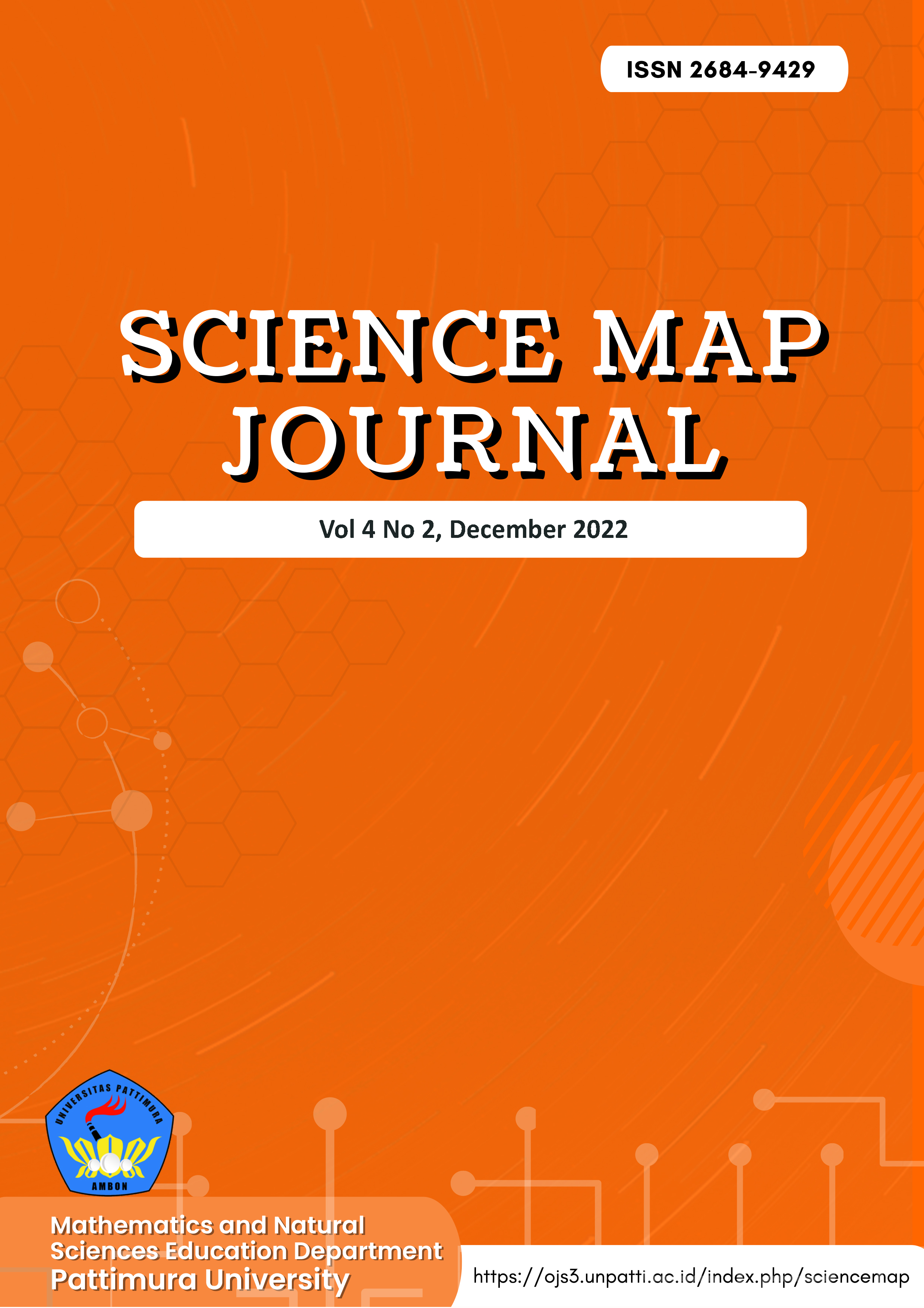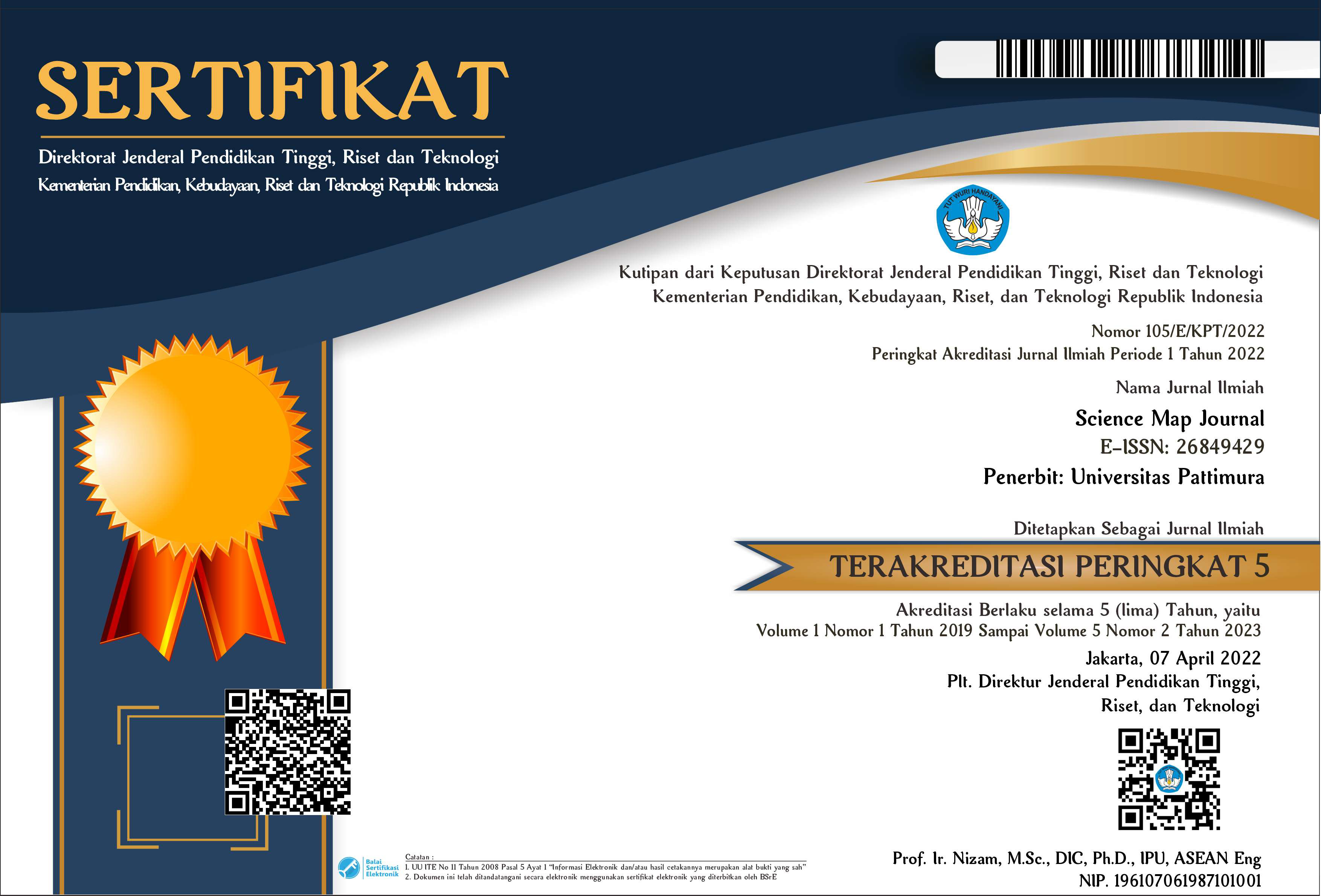ANALISIS KEMAMPUAN MATEMATIKA MAHASISWA CALON GURU MATEMATIKA DALAM MENYELESAIKAN MASALAH MATEMATIKA
Abstract
The purpose of this study was to determine the level of mathematical ability of prospective mathematics teacher students in solving SBMPTN math problems. This research was conducted at the Pattimura University Mathematics Education Study Program, Ambon. The subjects in this study were 19 prospective mathematics teacher students in the 3rd semester of 2017. The instrument used in this study was the Mathematical Ability Test (TKM) to classify the level of the mathematical knowledge of the research subjects with the following steps: 1) preparing instruments; 2) determining research subjects 3) carrying out research 4) performing data analysis of data collection; 5) formulate research results and discussion. The readability test results stated that the instrument was suitable for use in research. The empirical validity results show that it is 70% valid and has high reliability. The results showed that: 1) 5.26% of student math teacher candidates had a high level of math skills, 2) 10.53% of student teacher candidates had moderate math ability levels, and 3) 81.21% of student math teacher candidates had low math ability levels
Downloads
References
Pimta, S., Tayraukham, S., & Nuangchalerm, P. (2009). Factors Influencing Mathematic Problem-Solving Ability of Sixth Grade Students. Online Submission, 5(4), 381-385.
Robbins, S. P., & Judge, T. A. (2008). Perilaku Organisasi Buku 1, Edisi 12. Jakarta: Salemba Empat.
Ratumanan, T., & Laurens, T. (2006). Evaluasi Hasil belajar yang relevan dengan kurikulum berbasis kompetensi [Evaluation of learning outcomes relevant to the curriculum based on competency].
Soedjadi, R. (2007). Masalah kontekstual sebagai batu sendi matematika sekolah. Surabaya: Pusat Sains dan Matematika Sekolah UNESA.
Vale, P., Murray, S., & Brown, B. (2012). Mathematical literacy examination items and student errors: an analysis of English Second Language students' responses. Per Linguam: a Journal of Language Learning= Per Linguam: Tydskrif vir Taalaanleer, 28(2), 65-83
Copyright (c) 2022 Muhammad Samad Rumalean

This work is licensed under a Creative Commons Attribution 4.0 International License.




.png)


